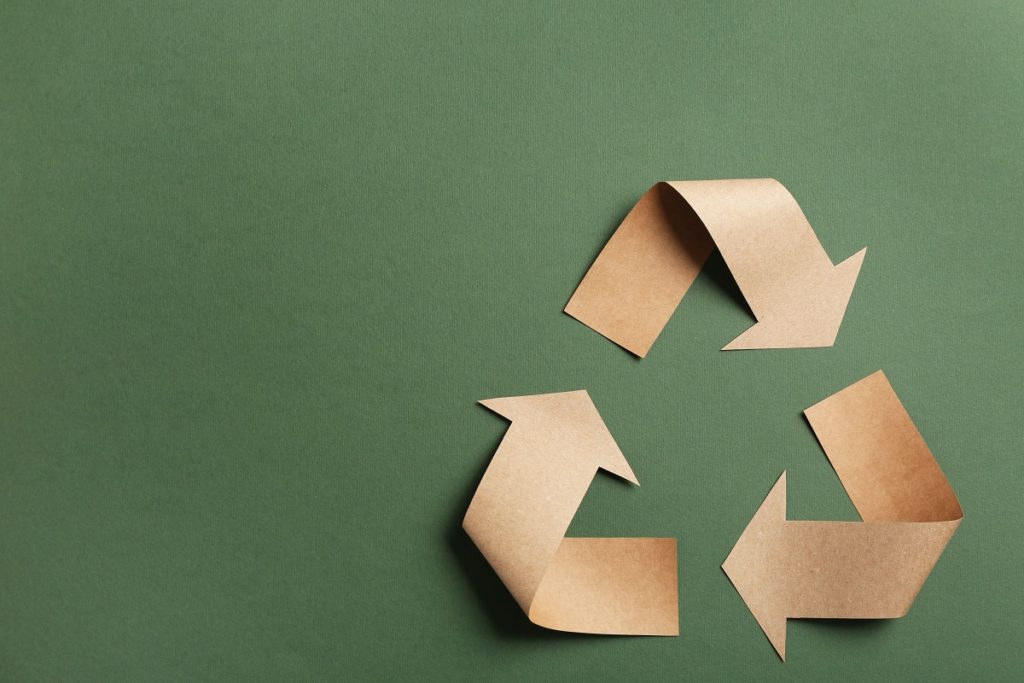What does it mean to be eco-friendly?

As companies across the globe make the move towards a more eco-conscious way of doing business, it’s becoming more important to know the latest buzzwords, and of course, what they mean. Your company can make an impact by making some small and meaningful changes to the way you operate, but with so much conflicting information out there, we decided to help cut through the noise.
So, what does it all mean?
Recycle
It seems an obvious one, but it’s worth touching on the word we see and hear all the time. As we know, recycling is the process of converting waste into new materials. Paper, plastic, glass and some metals, among other things can all be recycled but some materials are more difficult to recycle than others and some can be recycled more often than others. One downside to using plastic is it can only be recycled a limited number of times before its quality is too low to use again and then it ends up in a landfill. Glass or steel, on the other hand, can be recycled over and over without a serious loss of quality.
Ethical Trade
According to the ETI (Ethical Trading Initiative), ethical trade means that retailers, brands and their suppliers take responsibility for improving the working conditions of the people who make the products they sell. Most of these workers are employed by supplier companies around the world, many of them based in poor countries where laws designed to protect workers’ rights are inadequate or not enforced.
Fairtrade
Fairtrade connects producers, businesses, and consumers in a global system of sustainable, ethical trade. With over 30,000 unique Fairtrade products on sale worldwide, the decisions you make while shopping can improve the lives of farmers and workers in developing countries. Fairtrade uses its standards and certification to change trade for the better, in a way that is fair for producers and fair for consumers. You can read more about Fairtrade here.
Organic
In terms of clothing, organic refers to cotton that is made from materials that are grown without the use of chemical pesticides, herbicides or other chemicals. As it is grown without chemicals this also protects the soil, air and water from harmful contamination. Organic clothing produces around 46% less carbon dioxide compared to conventional cotton, it uses far less water and therefore growers can utilise rain far more in its irrigation. Choose organic and you’re not only helping the environment, but you’re helping the supply chain too.
Biodegradable
Biodegradable products are made from materials that break down naturally without causing harm to the environment. Fruits and vegetables are biodegradable as well as some paper and other items. We’ve seen an increase in the number of products available to companies with a biodegradable rating, for example notebooks made from discarded apple waste.
Compostable
Not to be confused with the aforementioned ‘biodegradable’, compostable is a definition given to items that can break down into small pieces within 90 days and don’t release toxic residue. Things like newspaper, eggshells, coffee grounds, fruits, veggies, etc can all be composted. They break down into nutrient-rich soil and can be used to help plants grow. Composting can happen on individual, communal, and industrial levels. Composting helps reduce the amount of food waste that gets sent to the landfill which in turn reduces greenhouse gases.
Carbon Neutral
When there is no net release of carbon something is defined as carbon neutral. For example, if a company releases a certain amount of carbon into the environment and then takes actions to take that same amount of carbon out of the environment, they are carbon neutral. This is often done by planting trees or donating money to organisations that work to reduce carbon emissions.
At Streamline we’re passionate about helping the brands we work with become more eco-friendly. Choose a sustainable branded merchandise collection, or a uniform made from organic Fairtrade cotton. Visit our Eco Collection page and contact us to find out more.
